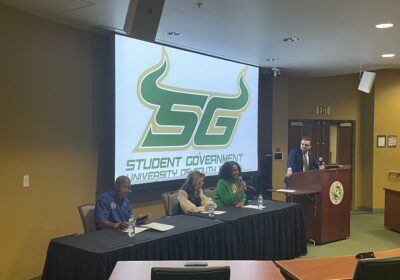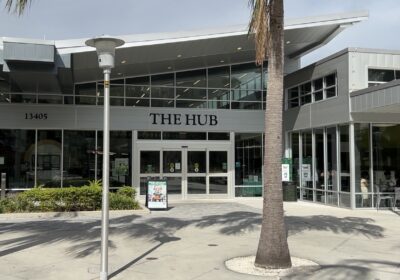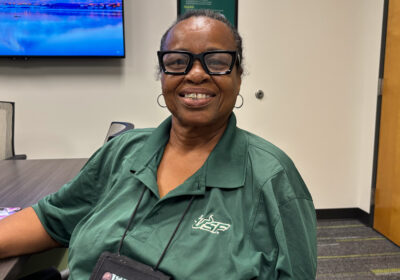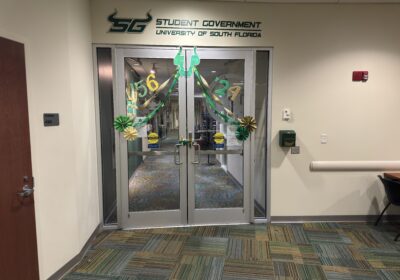USF implements modified phase II of campus reopening plan
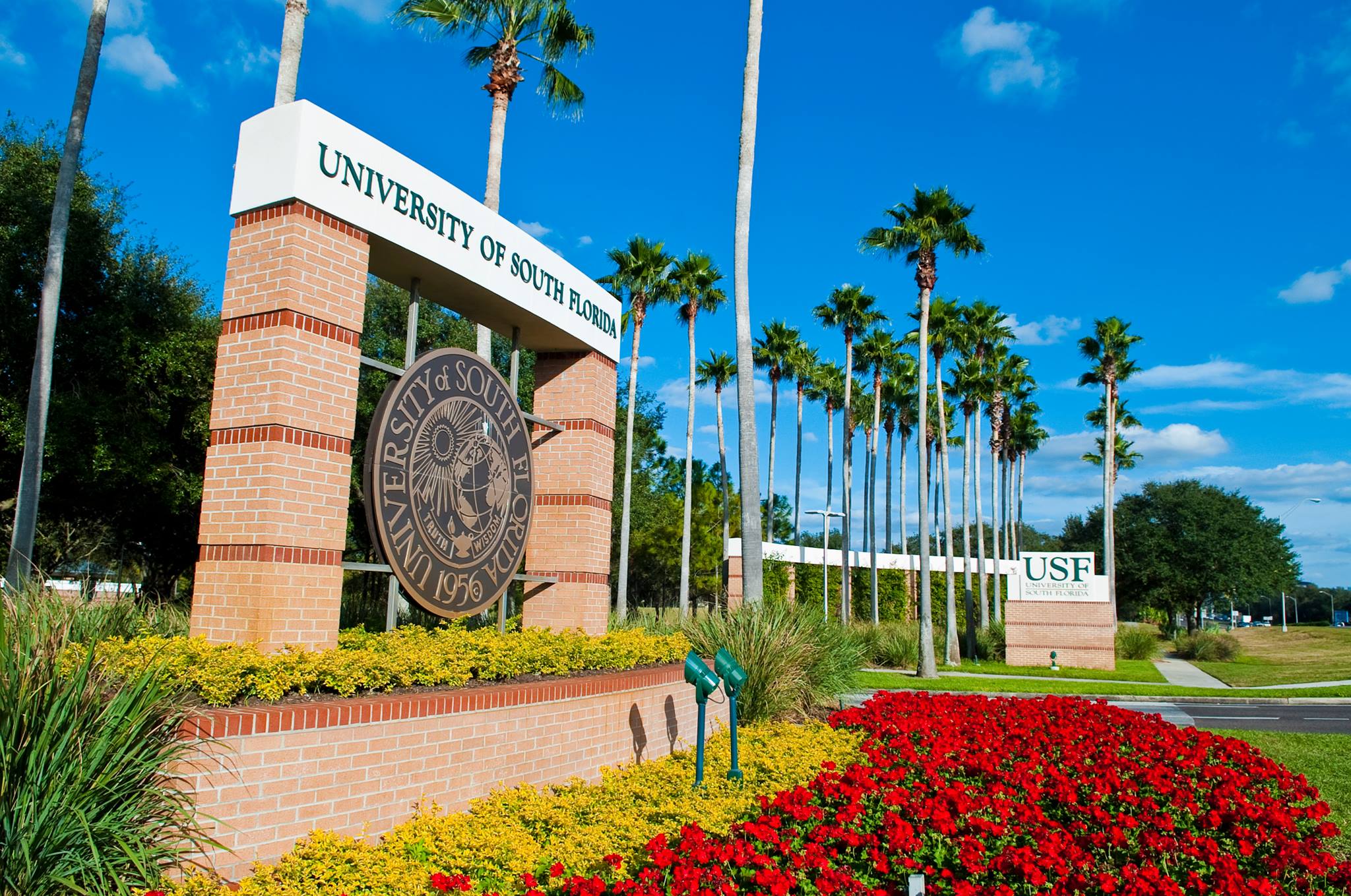
Over a month into phase I and with a delayed start, USF began on Friday a modified phase II of the Resuming University Operations Amid a Global Pandemic plan as the start of the fall semester on Aug. 24 approaches.
In a universitywide email, USF President Steven Currall said the phase II plans were modified as a result of the “evolving nature of COVID-19 and our understanding of the virus.” Originally scheduled to begin June 29, the university delayed its start as the state recorded increased daily records of positive cases.
“We have responded to the evolving nature of COVID-19, and our understanding of the virus, by adjusting our plans in phase II. In fact, a number of the phase II conditions, such as remote work and virtual meetings, are already in place,” Currall said.
Featuring enhanced safety precautions, the modified phase will still hold face-to-face, hybrid and online instruction during the fall semester, with up to 50 percent of faculty and staff allowed to return to campus by completing a daily symptom check and gaining clearance.
“Our enhanced safety precautions include installing thousands of signs with reminders to use required face coverings, to maintain physical distancing and practice good hygiene,” Currall said in the email. “Adjustments have been made to our facilities, such as adding plexiglass shields and limits on room and elevator capacities. New outdoor spaces have been identified and will be furnished as places to work or study between classes.”
Currall said the university has been monitoring data related to COVID-19 across Hillsborough, Pinellas, Sarasota and Manatee counties, including the number of new cases, test positivity rate and impact on hospital capacity.
“Over the past several weeks, we have observed encouraging trends in each of these indicators across Hillsborough, Pinellas, Sarasota and Manatee counties. These trends, as of August 5, show declining cases and improving test positivity rates for each of the four counties.”
As of Aug. 7, Hillsborough County had the fourth highest number of total cases across the state with over 31,100, according to the Centers for Disease Control and Prevention. Pinellas was three positions lower, with over 17,200 cases, while Manatee and Sarasota recorded over 8,900 and 5,900 cases, respectively.
On July 29, the state recorded over 9,900 new cases. The numbers decreased in the following days, with 7,137 cases on Aug. 1 and 5,489 cases on Aug. 4, according to the Florida Department of Health. Despite the decrease, the state recorded over 7,600 new cases on Aug. 5.
As previously reported by The Oracle, COVID-19 Task Force Chair and Dean of the College of Public Health Donna Petersen said a continued decline in the rate of new cases and positivity rate during a period of two weeks was required to move into the next phase.
With campus reopening, some facilities across all three campuses – Tampa, St. Petersburg and Sarasota-Manatee – will remain open, but with limited hours, capacities or activities.
The USF Library on the Tampa campus will reopen Aug. 19 with reduced hours, which students will be able to gain entry only through card access and reservation. The Marshall Student Center (MSC) will reopen Aug. 17, with entry limited to students, faculty and staff.
Besides the library and MSC, other facilities will also implement strict guidelines upon reopening.
On the Tampa campus, the Campus Recreation Center and FIT will reopen Aug. 22 with limited occupancy on a reservation basis. Under stricter guidelines, only a limited number of intramural sports with no contact will be available and all other activities where social distancing guidelines cannot be followed will not be permitted.
Living on campus will look significantly different in the fall than previous semesters as Housing and Residential Education implemented stricter rules as a result of COVID-19, including restriction on visitation and no issuance of refunds in the case of campus closure.
Residents must schedule a move-in appointment time in the Housing Portal between Aug. 16-23 before arriving on campus. To ensure the health and safety of students, all date and time slots will be restricted to a limited number of residents and residents will have to test negative for COVID-19 prior to moving into their residence halls.
Regardless of the facility, all students will be required to use face coverings and practice social distancing when on campus. Removal from the activity and/or possible disciplinary action might be taken in case the safety practices are not met.
“The success of our plan relies on USF’s culture of caring and a shared sense of responsibility to sustain the well-being of our community, even in our daily lives when we’re not on campus,” Currall said. “Anyone who feels sick should stay home. To be clear: There will be zero tolerance and serious consequences for individuals who don’t comply with our expected behaviors and who jeopardize the health of others. We’re all in this together.”
Apart from adapting to a new learning method, students will also be subject to travel restrictions implemented by the U.S. Department of State (USDOS) and the CDC.
As a result of the rising cases of COVID-19 across the world, the USDOS’ “Global Level 4 Health Advisory: Do not travel” remains in effect. In addition, there are restrictions in place on people arriving from certain countries, including Brazil, China, Iran, the European Union and the United Kingdom.
International students traveling abroad and planning to return to campus will be required to self-isolate for 14 days and test negative for the virus prior to returning to campus. This policy will also apply to students returning from New York, New Jersey or Connecticut.
Despite the challenges imposed by COVID-19, Currall reassured that the university is actively monitoring the virus’ conditions as the fall semester approaches.
“As we plan to bring our students, faculty and staff back to our campuses, we recognize that many of you have questions, especially as you read news reports about COVID-19 trends in our state,” he said. “I wish to reassure you that we are diligently monitoring public health data on a daily basis. We take seriously our responsibility to promote a healthy and safe environment for our community.”

